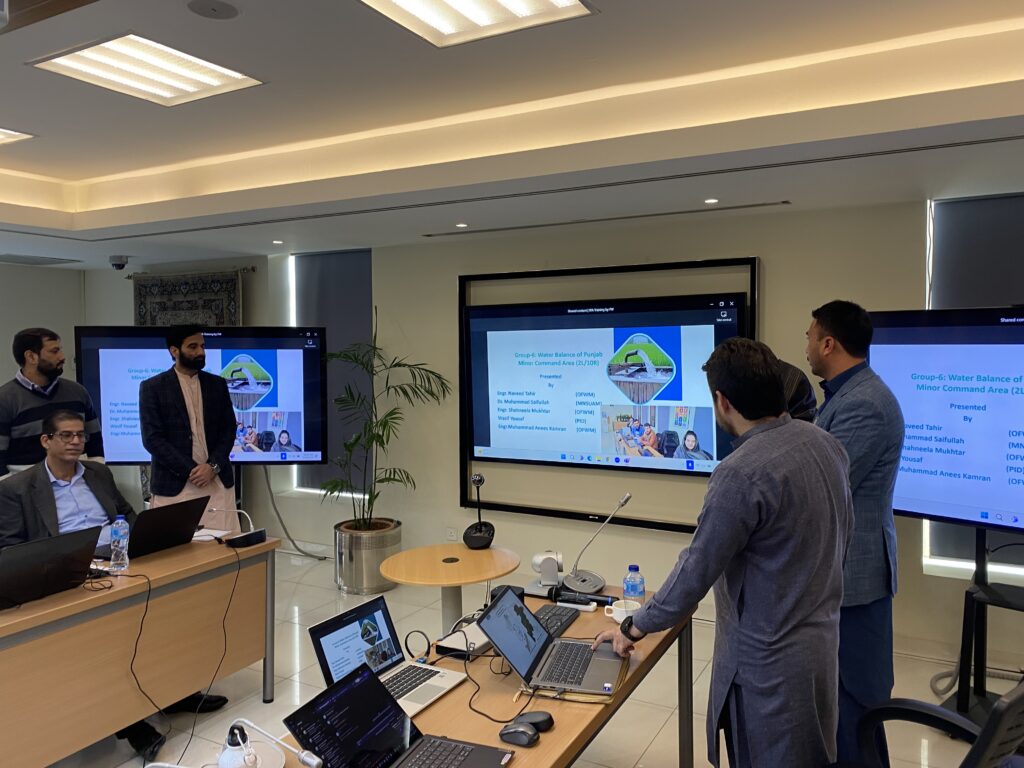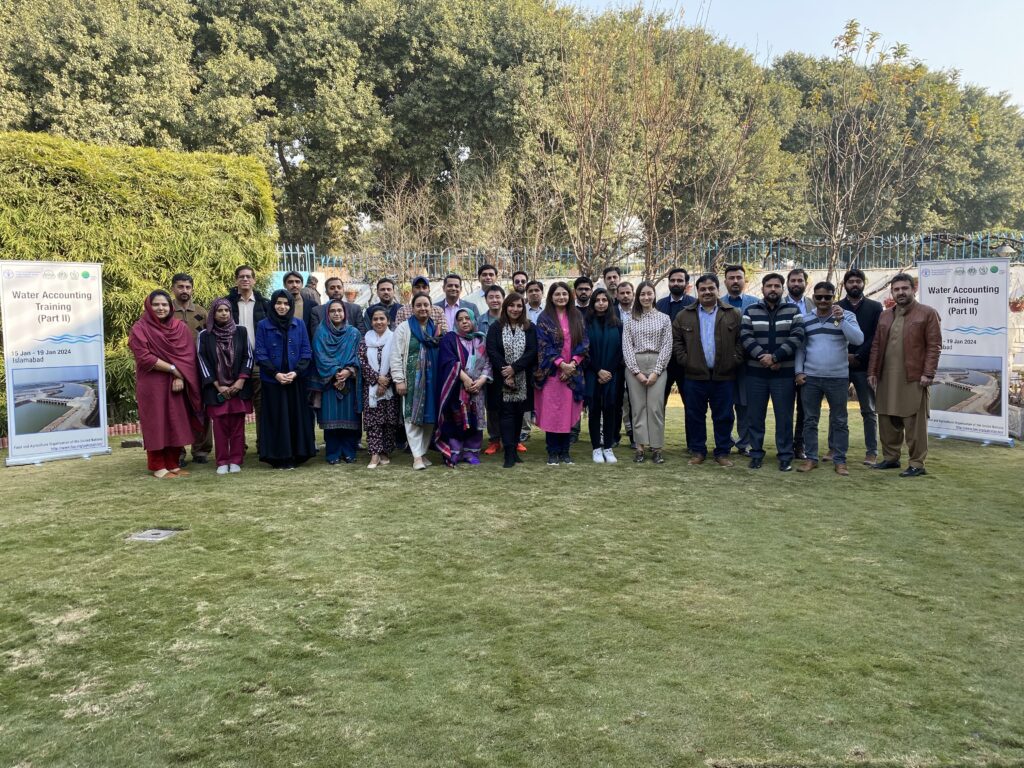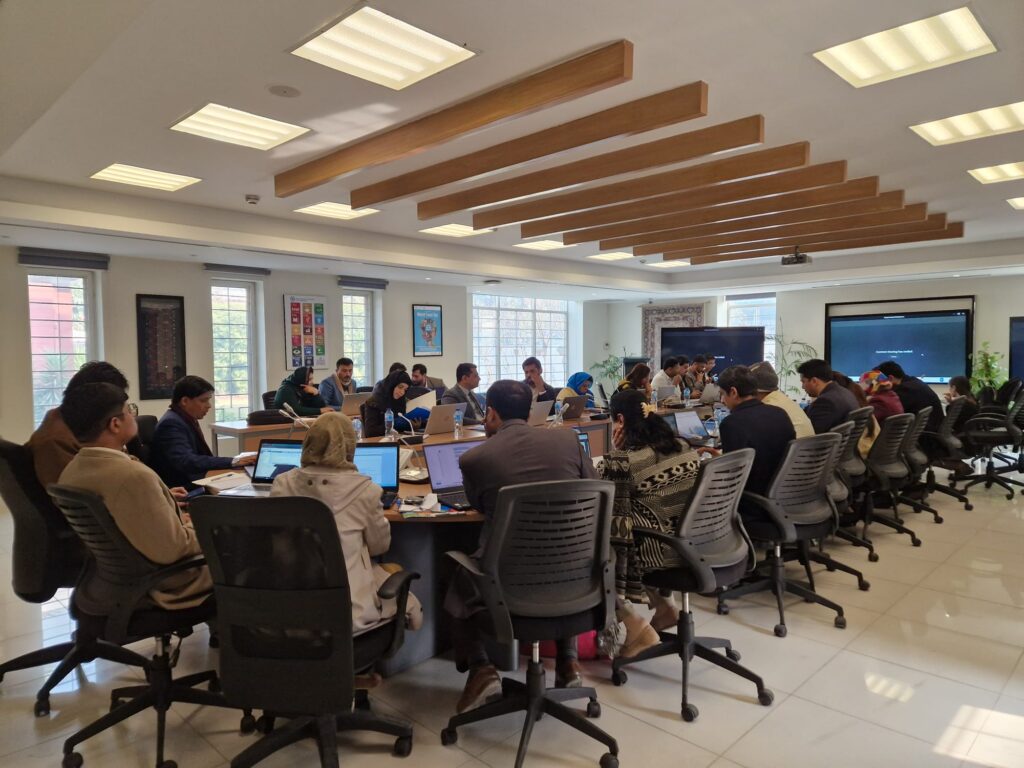This week, the second part of the Water Accounting Training for the Agriculture, Climate and Water Sector Organizations in Pakistan has been successfully completed at the Food and Agriculture Organization of the United Nations (FAO) office in Islamabad, Pakistan.
As an agrarian economy that heavily depends on water, it is crucial for Pakistan to adopt a more integrated water management approach and formulate data-driven strategies to avert from the deepening water crisis.
This training has been designed by FutureWater and FAO as part of the Green Climate Fund funded project titled: ‘Transforming the Indus Basin with Climate Resilient Agriculture and Water Management’. Component 1 of this project focuses on enhancing information services for climate change adaptation in the water and agriculture sectors.
This second part of the training is comprised in seven modules and the aim is to enable stakeholders to develop water accounts at different scales. Given the growing issues of water scarcity, climate change impacts and unmet irrigation demands, this water accounting system can aid decision-makers to design evidence-based policies and achieve sustainable water resources management.
In this in-person training of one week, participants further extended their knowledge on how to compute inflows and outflows of a system at using remote sensing and assessing global datasets.
More information about the project can be found here.






